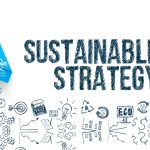Have Your Business Back-to-School Ready with Less Waste in Tow
Originally published on Aug. 11, 2021. Repurposed on Aug. 8, 2023.
The back-to-school season has arrived, and for many businesses, this is an incredibly hectic time. Parents and teachers are trying to decide what is essential for students as the new year begins. While learners and educators prime themselves to snap up supplies and go in for services, businesses should also prepare for the rush. More materials and supplies mean more packaging and – unfortunately – more waste for companies to sort through.
So, why not have your business “back-to-school” ready this season? Absorb some knowledge about waste to improve efficiency and maximize recycling, all aligned with your sustainability goals.
Let’s take a closer look at three key industries being affected by the season (retail, automotive, and food) and how businesses can waste less, spend less, and get more accomplished.
According to a new survey from the National Retail Federation and Prosper Insights & Analytics, spending for the new school year is expected to reach an all-time high ($135 billion, a 24 billion increase from 2022).

Retail Industry – Try Waste Solutions on for Size
For businesses in the retail industry, you’ve probably already felt the impact of the back-to-school season. Considering many schools are returning to school this week or next, many families may have wrapped up their buying. But, of course, it’s syllabus week, too. So, retail companies shouldn’t let their guards down yet because back-to-school shopping typically peaks in August.
With sales numbers on the higher end, how can retail companies remain efficient?
Managing waste has a far more significant impact on retail businesses than one might think. With the rising costs associated with materials, packaging, and delivery, there’s an apparent need to improve waste systems in retail stores. As a result, many businesses create programs for their customers to recycle products when their active life cycles conclude and incentivize them to participate in such programs. Whether it is retail stores utilizing take-back programs or buying recycled products from material companies, methods are being used to keep waste out of incinerators and landfills.
One of the most problematic areas is e-commerce packaging waste. E-commerce became a lifeline for consumers and companies during the pandemic, and online shopping will continue to strain the industry through the holidays. Nearly every retail operation has an online component, which means shipping materials are included in their waste footprint. This packaging issue doesn’t solely involve products shipped directly to the consumer but also a company’s freight packaging. According to data collected by Limeloop in 2018, shipping services estimated that around 165 billion packages are shipped each year, which roughly equates to one billion trees. One can only imagine where those numbers are today.
Retailers are facing unprecedented challenges. The explosion of e-commerce is leading to shuttered storefronts in record numbers. Being conscious of the impact and developing simple solutions (like take-back programs or selling products made from recycled materials) can decrease what is put into landfills. Working with a single-source company that analyzes and manages your waste streams can help retailers hugely streamline their operations, meanwhile saving two precious assets these days: time and money. A custom-built program for your business may just be a perfect fit.
Auto Industry – Putting Waste into a Positive Gear
With the new school year upon us, many people ensure their car is equipped to handle school transportation, college commutes, and simple everyday trips. Regardless of where the back-to-school journey takes auto customers, the industry recognizes the importance of regular vehicle services, including oil changes, engine maintenance, tire rotations, brake checks, and parts replacement when necessary.
Each of these services comes with a lot of waste that needs to be properly disposed of. The Environmental Protection Agency has clear standards for used oil disposal, solvents, batteries, parts washer solutions, paints, and scrap tires. If these materials are not handled correctly, they can harm people and the environment, resulting in fines and expensive cleanup. That’s more phone calls, expenses, and reasons to sweat beyond the mere vehicle service and repair. Make sure you’re working with a waste service provider that will keep you fully compliant and is aware of the latest regulations for your diverse set of waste streams.
There are simple tasks the auto community can do to keep stations clean and profitable, like drip pans, sealing potential spills or leaks, and using less hazardous solvent cleaners and chemicals. Additionally, like the retail industry, there’s a lot of packaging and distribution of parts and materials during the car manufacturing and servicing cycles. Auto companies can use recyclable wrappings and replace wood pallets with reusable shipping containers to mitigate the problem.
The automotive industry produces significant quantities of waste. With that in mind, it would be beneficial to utilize sustainable practices to reduce the impact and turn some of that waste into valuable resources. Implementing these types of environmental practices and management that are specifically focused on waste can help companies develop a greener conscience, obey legal and ecological standards, and improve their financial performance. A good partner can do the heavy lifting in the waste department and find a customizable solution to keep your auto company on track.
Food Industry – Feasting on Some Waste Wisdom
Whether students are eating packed lunches or at school cafeterias or off-campus dining establishments, the reality is tons of food goes uneaten, and materials supporting that food crowd landfills.
According to data gathered by Feeding America, 108 billion pounds of food is wasted in the United States each year. Shockingly, this is about $161 billion worth of food feeding landfills instead of mouths or the Earth. It’s damaging to world food supplies and restaurants in terms of inflated food costs. In addition, raw materials that could have been used elsewhere for profits are being wasted.
To prevent the adverse effects of waste on the environment and human health, and to encourage resource use optimization, the concept of waste and recycling management arises. Qualified companies can outline a practical approach to managing and handling waste sustainably, including tailor-made programs and innovative technologies that can turn waste into resources.
The back-to-school rush can be an incredibly valuable time for your business. We’ve been given a great responsibility to our youth and an enormous opportunity to make real change by positioning operations as one that supports education and the world at large. Keep our planet and its inhabitants growing!











